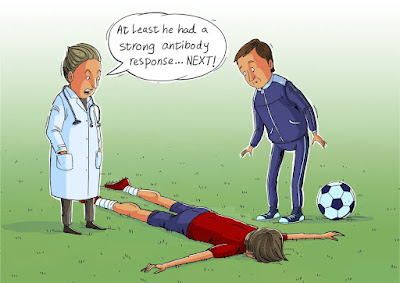*** denotes well-worth reading in full at source (even if excerpted extensively here)
1:
...In credit markets, the ability to raise capital (or lack thereof) is the key indicator of distress.
— Matt Dines (@BuildCIO) October 28, 2022
Capacity in the High Yield corporate bond market has been in steep contraction since mid 2021.
As of Q3 '22, quarterly capacity has fallen ~80% from peak. pic.twitter.com/ALviMNSwDi
...This is not oil, a meme stock or even a shitcoin. It’s credit card debt in America. pic.twitter.com/3YIiLg15e7
— Genevieve Roch-Decter, CFA (@GRDecter) October 30, 2022
Today's investors are terrified of recent analogs aka. 2000, 2008. Because if this bailout fails, they will get stuck owning the most overvalued market in history. A worst case scenario than EITHER of those events.
— Mac10 (@SuburbanDrone) October 31, 2022
Correlation between CPI and profit is the highest since Y2K. pic.twitter.com/9iudkQSuVG
Contrarian Perspectives
Extra [i.e. Controversial] Fare:
*** denotes well-worth reading in full at source (even if excerpted extensively here)
Krishnamurti: “It is no measure of health to be well adjusted to a profoundly sick society.”
Unsustainability / Climate Fare:
RIP Fare:
I learned this morning that Herman Daly unexpectedly passed away. Herman had a huge influence on the field of (heterodox) economics, on other humans working towards livable futures, and on me/my path. Here is short reflection - w/ our recent podcast conversation link in comments pic.twitter.com/hGYPwAp8rN
— Nathan John Hagens (@NJHagens) October 30, 2022
Read [almost?] everything by eugyppius; el gato malo; Mathew Crawford; Steve Kirsch; Jessica Rose!
Chudov, Lyons-Weiler, Toby Rogers are also go-to mainstays; a list to which I have added Andreas Oehler, Joey Smalley (aka Metatron) and, Julius Ruechel; Denninger worth staying on top of too for his insights, and especially his colorful language; and Norman Fenton; Marc Girardot; plus Walter Chesnut (on twitter); later additions: Sheldon Yakiwchuk & Charles Rixey & Aaron Kheriarty; and newest additions Meryl Nass and the awesome Radagast; and Spartacus is on substack now!!; I will of course continue to post links to key Peter McCullough material, and Geert Vanden Bossche, and Robert Malone, and Martin Kulldorff, and Jay Bhattacharya, and Sucharit Bhakdi, and Pierre Kory, and Harvey Risch, and Michael Yeadon, and John Ioannidis, and Paul Marik, and Tess Lawrie, and Dolores Cahill, and [local prof] Byram Bridle, and Ryan Cole, and... of course Heather Heying and Charles Eisenstein often bring their insight and wisdom to the topic as well... and if Heying's substack isn't enough, she joins her husband Bret Weinstein at their DarkHorse podcast ....
The Early Estimates of the Fatality Rate Were Very Wrong
Pushback Fare:
...... these precautions were totally misguided. In April 2020, no one got the coronavirus from passing someone else hiking. Outdoor transmission was vanishingly rare. Our cloth masks made out of old bandanas wouldn’t have done anything, anyway. But the thing is: We didn’t know.
brown university econ professor emily oster is out with a new missive in the atlantic (where else?) and it seems to be generating quite a lot of heat.
perhaps this is because it is so seemingly self-serving and tone deaf.
after all, this is quite the spicy take from the woman who did so much to gather so much useful data on masking in schools only to disavow the obvious conclusions it led to because the orthodoxy of those around her at brown U would not allow "masks don't work to stop covid" to be reported. ......
...Lockdown and jab pushers waiting for us to shake their hands and forget all about it: pic.twitter.com/QxyhYlM0Is
— Bob Moran (@bobscartoons) October 31, 2022
The fact that they heavily suppressed this image and its message tells you everything you need to know about what kind of people they are. pic.twitter.com/U7y4Vk8CmZ
— Bob Moran (@bobscartoons) October 31, 2022
I did na-zi that coming...https://t.co/z5esKqySfb
— Dave "True Disbeliever" Collum (@DavidBCollum) October 31, 2022
Back to Non-Pandemic Fare:
Northeast #Brazil rn pic.twitter.com/AE0ZeINFP9
— Abier (@abierkhatib) October 31, 2022
It’s actually quite sad, really speaks to the levels of intellectual decrepitude in the West today. The time of the Enlightenment, the big revolutions is well and truly gone. We’re stuck with our mediocre operators.It’s also why this is such a dangerous time. A positive vision brings confidence, it brings hope, it motivates, it makes people look forward to what’s to come. The West has none of that today.The future is scary, the dominant feelings are fear and anger.
Rigger-ous Reads (on Culture Wars, Identity Politics, etc.):
I've heard some people on Twitter aren't happy with the basic left vs right map for Latin America and want more nuance. So here's a first draft with more nuance.
— boz (@bloggingsbyboz) October 31, 2022
If you don't like it, don't complain. Make a better one. pic.twitter.com/IDIA8xDt9x















